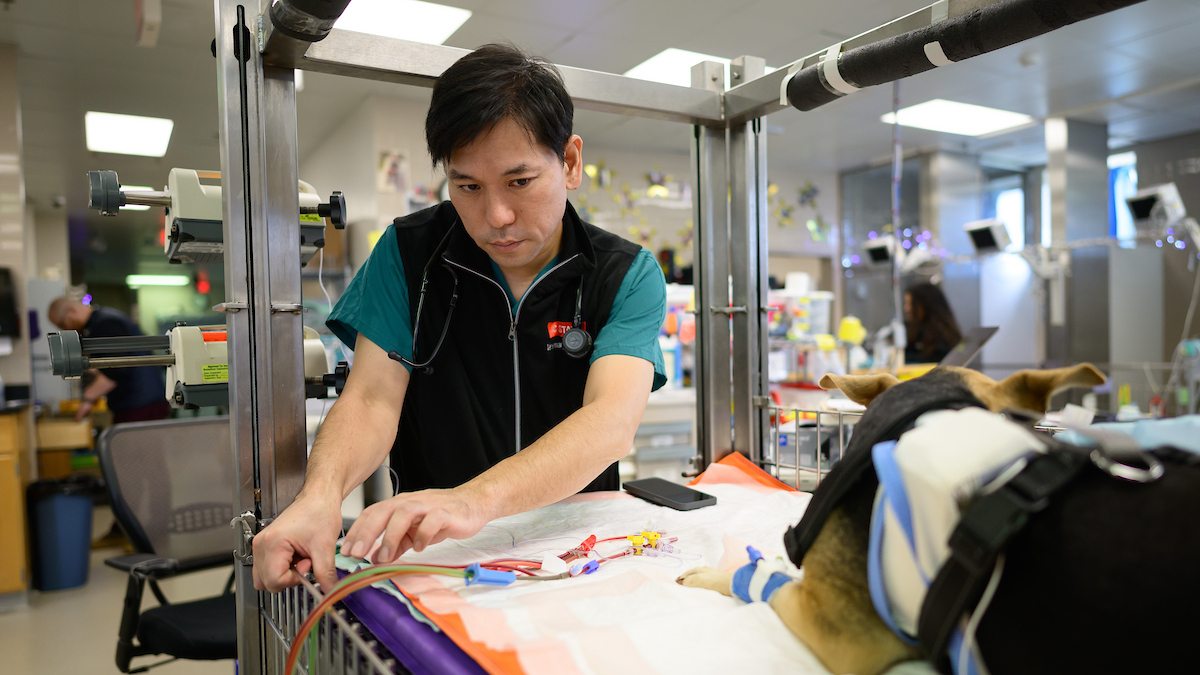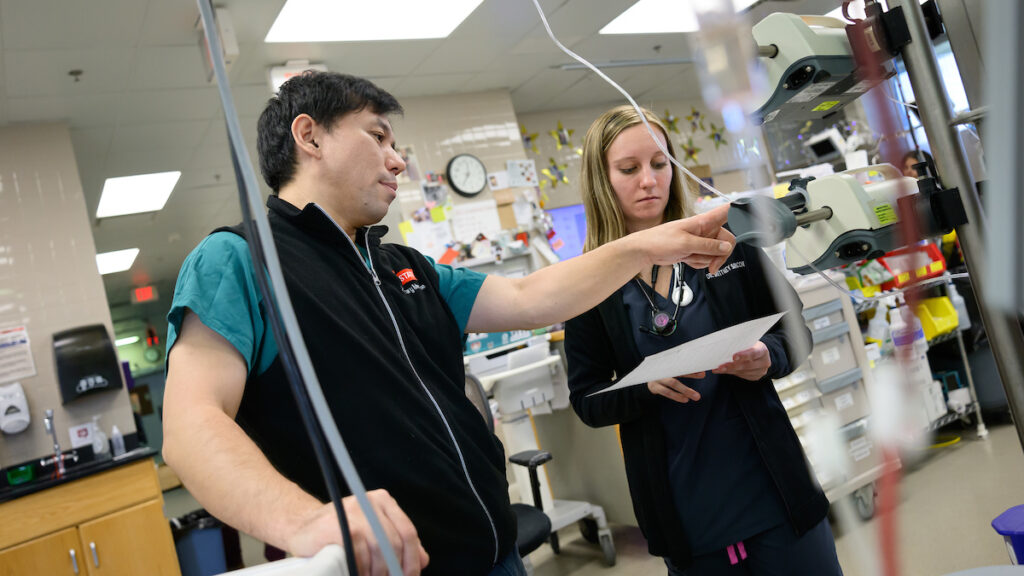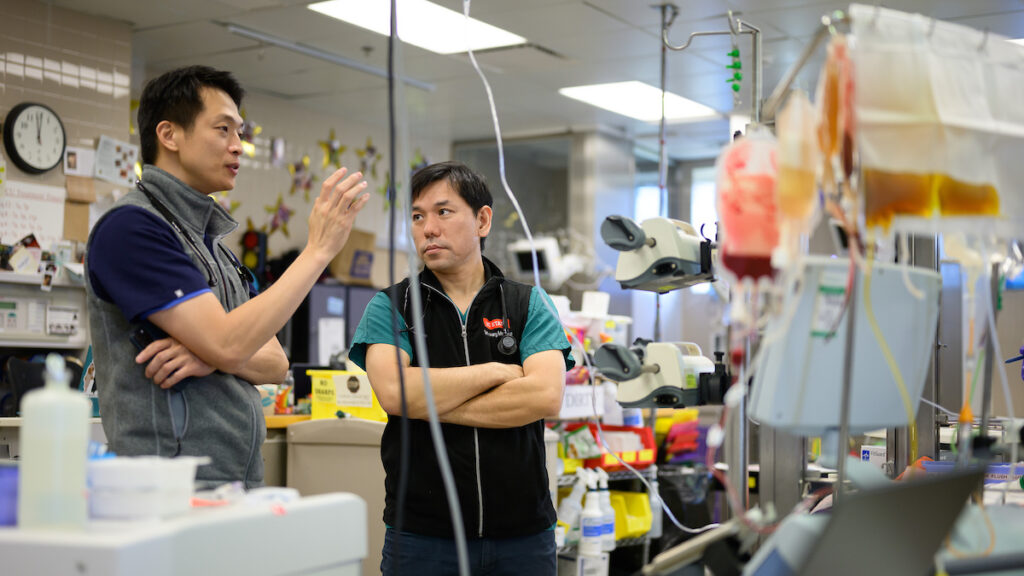NC State College of Veterinary Medicine Names New Director of Extracorporeal Services
Dr. Yu Ueda, a board-certified assistant clinical professor of critical and emergency care, has taken the helm of one of the largest veterinary extracorporeal therapy services in the world.

Dr. Yu Ueda, an associate clinical professor who is board-certified in critical and emergency care, has been named director of extracorporeal services at the NC State College of Veterinary Medicine.
Extracorporeal therapy involves filtering and removing toxins from an animal’s bloodstream using highly specialized techniques and equipment. Services that fall under this scope include hemodialysis, hemoadsorption and apheresis for the management of renal failure, immune-mediated diseases or toxicity.
NC State is the only veterinary facility between Washington, D.C., and Florida that offers all types of extracorporeal therapy, which are often essential in various emergency situations.
“When it comes to dealing with all kinds of intoxications in dogs and cats, there often is no antidote, so the extracorporeal therapy that we offer simply saves lives,” says Dr. Anthony Blikslager, director of Veterinary Medical Services at the NC State College of Veterinary Medicine. “I am grateful to have Dr. Ueda lead this critical unit. He is an amazing and highly qualified veterinary clinician and also the ultimate problem solver — especially for unusual cases. Think venomous snakes or toxic plants.”
Ueda, a native of Nara, Japan, received his DVM from Washington State University, completed a rotating internship at Auburn University and completed his residency and a Ph.D. at the University of California, Davis, before joining the NC State Veterinary Hospital team in 2020. He had previously served as associate director of the extracorporeal service.
“My biggest goals are always taking excellent care of my patients and training more experts in this field,” Ueda says. “I also hope to conduct more research to add to the data on how we can use these therapies to better help critically ill animals and continue advancing this relatively new field. Extracorporeal therapy has the potential to be a game-changer for conditions where current treatment options are limited in both animals and humans.”
NC State’s extracorporeal service treats scores of patients a year, some coming from more than 500 miles away. Last fall, the family of a great Pyrenees that consumed something toxic drove five hours overnight from Charleston, South Carolina, to the NC State College of Veterinary Medicine so the dog could receive life-saving therapeutic plasma exchange, Ueda says.
“Many of the cases we see come through the emergency department because an animal got into a lot of ibuprofen, Advil or other NSAID, or even toxins like ethylene glycol in antifreeze,” Ueda says. “Using these treatments to remove these toxins is what we target with extracorporeal therapy, but this type of medicine also involves hemodialysis treatment for acute kidney injuries or acute on chronic kidney disease to give them the best chance to live and provide a good quality of life while they are recovering from the acute illness.”

Ueda also researched ways to advance and innovate extracorporeal services. In 2024, he published papers with Dr. Kallie Hobbs, Dr. Katie Sheats and Dr. Megan Burke and other members of the equine medicine team at NC State investigating the use of hemoperfusion extracorporeal therapy as a possible treatment for sepsis and systemic inflammation in horses.
Extracorporeal treatment most often falls within the NC State nephrology and urology service, which is slated to become an independent department now that the American Veterinary Medical Association Board of Veterinary Specialties has provisionally elevated the service from a focus area to a college. Ueda is also completing a residency at NC State to become certified as part of the new American College of Veterinary Nephrology and Urology.
In order to support the only service of its kind in the region, NC State’s extracorporeal team is notably large, Ueda says. Three fellows and two faculty members — Ueda and Jiwoong Her — are extensively trained in the specialty and offer on-call care 24/7.
Ueda says he feels lucky to work with such an accomplished and collaborative team. Service members’ support, plus the excellent interim leadership of internal medicine professor Dr. Shelly Vaden, have made his transition into the directorship smooth.
“I remain committed to advancing research and expanding access to life-saving therapies,” Ueda says. “With a foundation established by Dr. Vaden, rooted in innovation, collaboration and a dedication to patient care, I envision a future where extracorporeal therapy continues to evolve, offering more hope for critically ill animals.”



